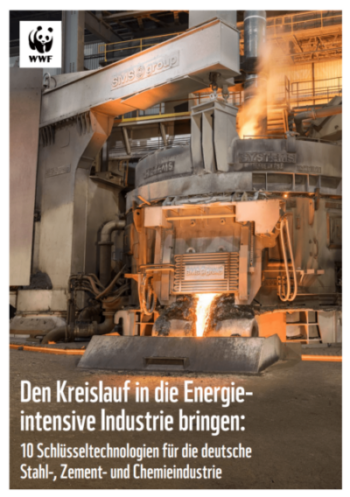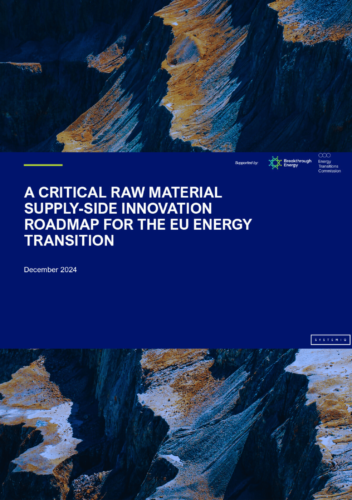Electrifying industrial heat is critical for decarbonization and can increase energy security. Electrothermal energy storage (ETES) is a new, commercially-available technology to electrify heat in industry and other sectors.
A report by Systemiq, developed with the support of Breakthrough Energy, shows how with a few targeted actions, regulators and policy makers can accelerate the adoption of ETES, promising new technologies for building low-carbon, competitive and resilient energy systems. By mid-century, ETES could displace the equivalent of ~30%–40% of current global gas use and abate up to 14% of today’s energy related GHG emissions. Actions of stakeholders, including technology providers and industry end users, will ensure that this scale-up is underway by 2030, and potentially without requiring subsidies.
ETES can shore up the competitiveness of local industry and reduce dependence on natural gas, by replacing natural gas (or coal or oil) consumption with the cheapest hours of locally-generated renewable electricity. Countries could benefit from ETES in providing heat produced from renewable electricity for key industries such as food and beverage, textiles and chemicals.
ETES brings additional benefits for the electricity system in facilitating more renewable generation to come online and lower grid investments through its ability to store electricity in the form of heat. ETES technologies can have local supply chains as no scarce materials are required. ETES systems are already operating across sites in Europe and the United States.
Read the Executive summary or download the full report below. The Country Action Plans for Denmark, France, Germany, the Netherlands, the United Kingdom, Spain and the Texas ERCOT region in the United States and the Technical Appendix will be published on this webpage soon.




